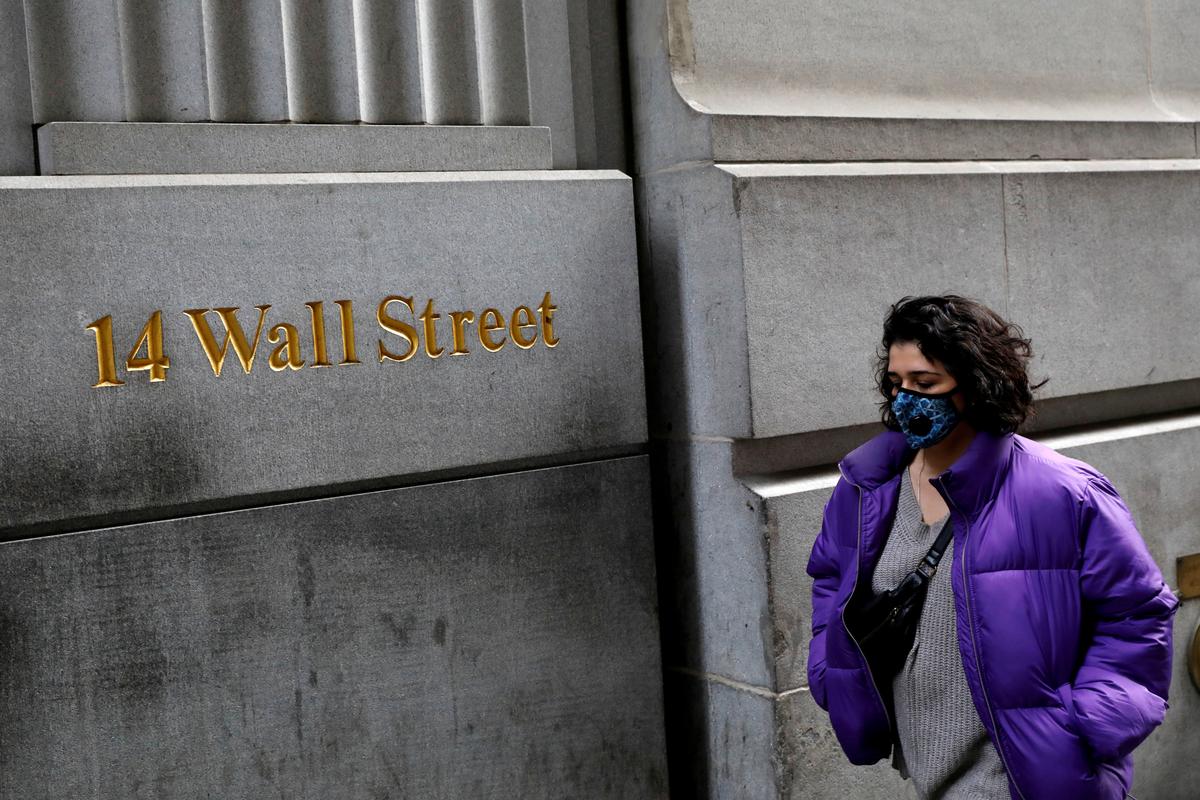NEW YORK (Reuters) – The words “bear market” and “recession” are being used with increasing frequency as investors try to assess how badly the coronavirus outbreak will damage global growth and to what extent it could further weigh on asset prices.
FILE PHOTO: A person wearing a face mask walks along Wall Street after further cases of coronavirus were confirmed in New York City, New York, U.S., March 6, 2020. REUTERS/Andrew Kelly/File Photo
The accelerating outbreak has stoked violent swings in markets around the world. Many investors say there is little clarity on what trajectory the virus will take and how effective government measures will be, making it difficult to gauge how much economic damage has already been baked into asset markets.
Rabobank in a note earlier this week said the initial strategy in most Western countries, which was to do nothing and tell people all is well, was not effective.
As the virus has spread in the United States, investors have become increasingly worried about a number of factors, including what some have called an uneven government response, confusion about the number of cases in the country and concerns that fear of contracting the virus or government-imposed limits on movement will hit consumer spending and damage the economy.
“The market has not caught up to the facts. We are thinking another 20% or so lower

